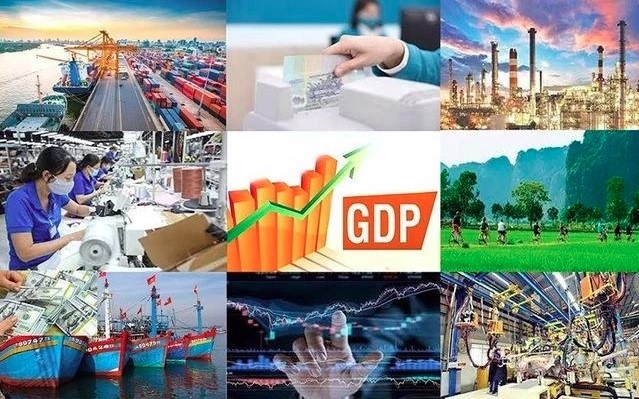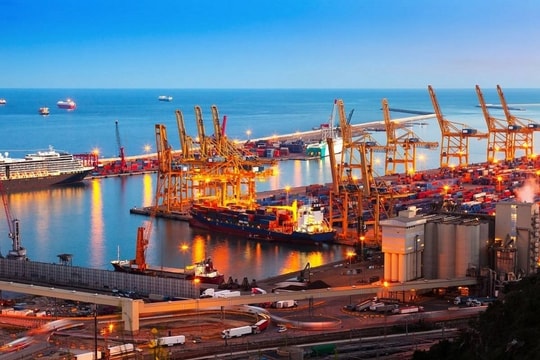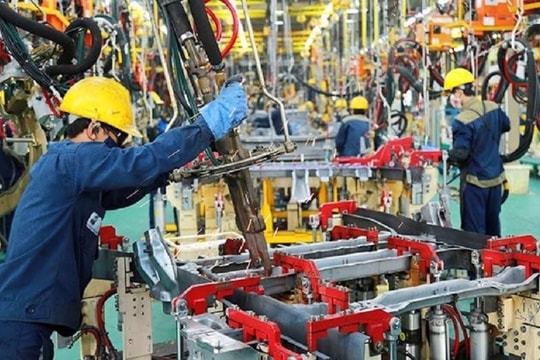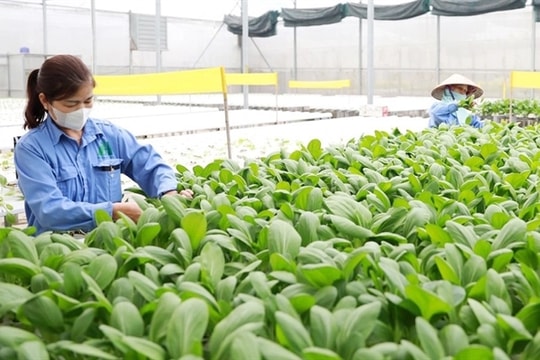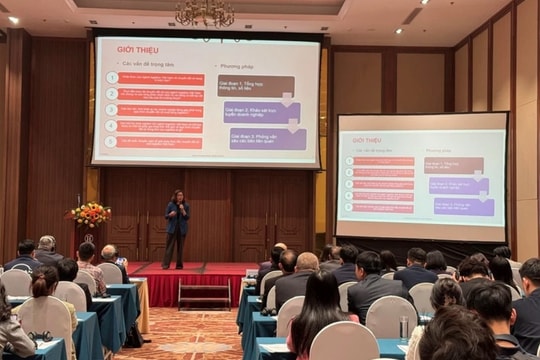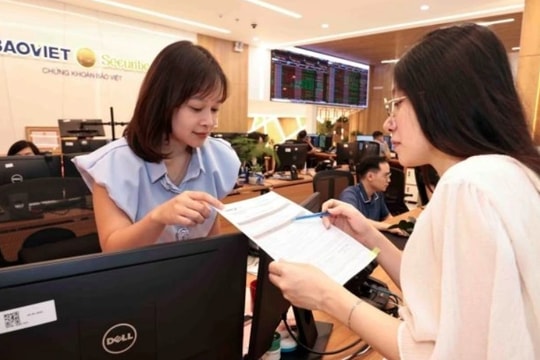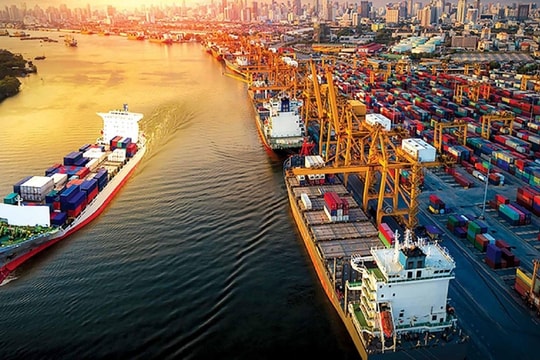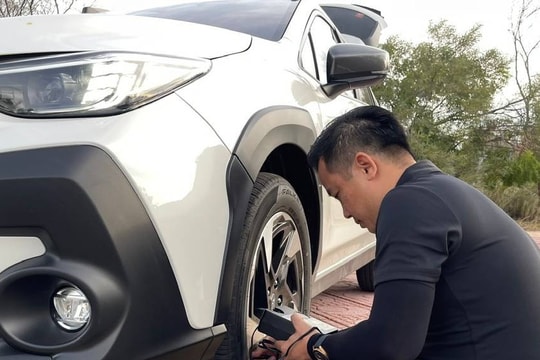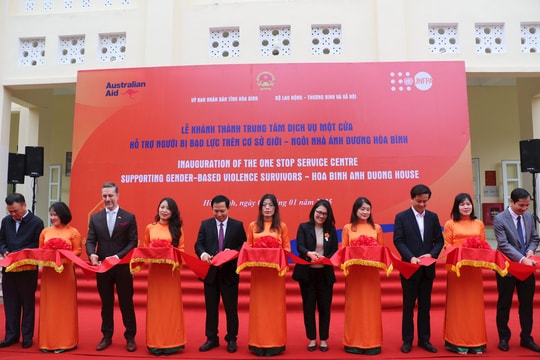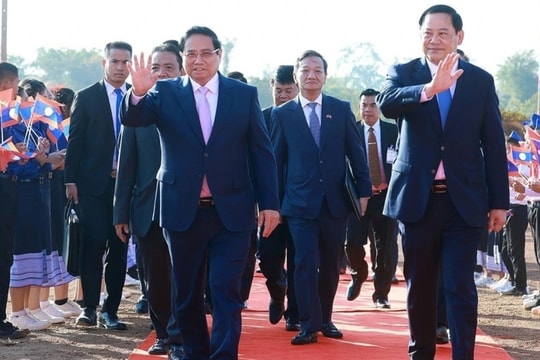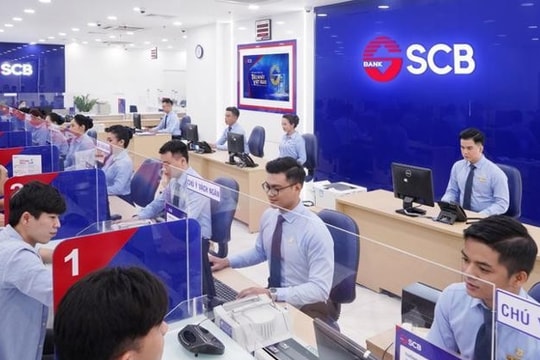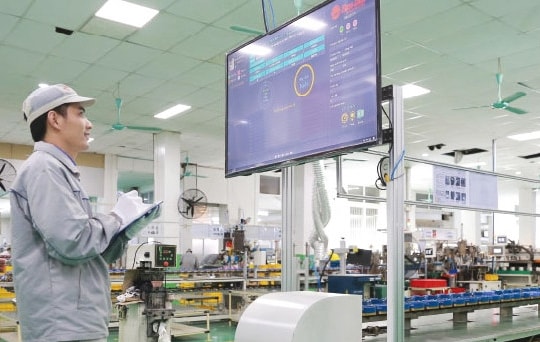However, the target of 8% GDP growth for 2025 presents numerous challenges despite the emergence of new opportunities.
Experts believe that the Vietnamese economy in 2025 will still have substantial growth drivers, including rising consumer spending, accelerated public investment, a recovery in the real estate market, and expectations of an upgrade in the stock market's status. However, resolving legal hurdles for real estate projects needs to be pursued more decisively, while businesses continue to face significant difficulties in accessing capital.
Nguyen Duy Ninh, CEO of Ho Guom Group, highlighted the struggles of labor-intensive enterprises like this, stating that their thin profit margins make them highly vulnerable to fluctuations in exchange rates or labor costs, potentially turning profits into losses. He expressed hope for greater stability in monetary policy and the labor market to ensure smoother business operations.
The Institute for Economic Research and Policy pointed out several risks that could impact Vietnam's economy in 2025, including slow and uneven public investment disbursement, persistent risks in the corporate bond market, and inflationary pressures. While inflation in 2024 was projected to remain below 4.5%, global oil prices, commodity price fluctuations, and exchange rate volatility could negatively affect exports, imports, and consumer purchasing power.
Dr. Nguyen Quoc Viet, deputy director of the Institute for Economic Research and Policy, underscored the need for medium-term investments to upgrade infrastructure, enhance workforce skills, and promote scientific and technological development. He noted that Vietnam's global competitiveness has long been hindered by bottlenecks in these areas, making it crucial to foster innovation and sustainable business practices to achieve fast and resilient growth.
Globally, economic growth from 2024 to 2026 is forecast to average 3.2%, lower than pre-pandemic levels. For comparison, China is expected to grow at 4.5%. The nation's target of nearly 8% growth is ambitious, particularly as the country faces huge challenges from exchange rate pressures, geopolitical risks, increasing trade protectionism, and high global inflation—all of which directly affect Vietnam’s highly open economy.
Economist Dr. Can Van Luc noted that high interest rates and exchange rate pressures remain key challenges, alongside the strong impact of trade protectionism on Vietnamese businesses. Another risk is the possibility of Vietnam being labeled as engaging in currency manipulation. Luc stressed the importance of leveraging domestic strengths, particularly consumption and investment, to overcome these challenges.
To address the obstacles of 2025, experts recommend policies to attract high-quality foreign direct investment (FDI) into emerging industries and advocate for stronger investment in agriculture, forestry, and fisheries through high-tech applications to improve quality and promote organic farming.
In the short term, measures to boost growth include focusing on stimulating investment, particularly private investment, to ensure high total social investment and expanding the money supply appropriately to drive economic activities. Efforts to boost credit growth in priority sectors also remain critical to maintaining momentum.



